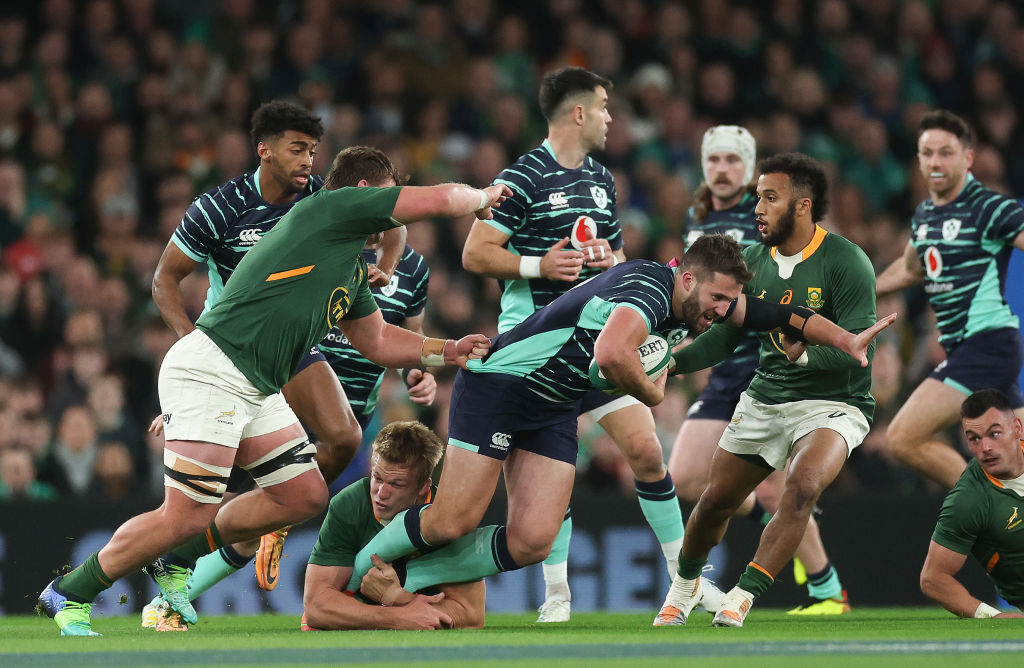Former Munster hooker Jerry Flannery has claimed that the difference between his current employer, South Africa, and other national rugby teams like Ireland and England lies in hope and inspiration.
South Africa is a beautiful country, but the wealth disparity and living conditions between different groups are often hot topics when it comes to discussions about the nation. There are also issues of accessibility in sports for less affluent members of society, often Black South Africans.
Times have changed since Errol Tobias became the first Black player to start a Test match for the Springboks against Ireland in 1981. His selection paved the way for other Black players to join the national team. Then in 1995, the only non-white player on the Rugby World Cup-winning team was Chester Williams. Today, players like Cheslin Kolbe, Siya Kolisi, and many others who are well-established members of the World Cup-winning squad are black.
South Africa’s rich and historic past means that every game and every win holds deep significance for the players. This connection has helped them achieve back-to-back Rugby World Cup victories.
Flannery, a former Ireland and Munster player, is now part of Rassie Erasmus’s coaching staff and will help the team face England in London this weekend. When asked about the difference between the Springboks and other teams, the Munster legend claimed that the chance to inspire fans back home is often what sets the Springboks apart from their opponents.
 Stuart McCloskey of Ireland is tackled (photo by Oisin Keniry/Getty Images).
Stuart McCloskey of Ireland is tackled (photo by Oisin Keniry/Getty Images)."I think the relationship with the national team is very different from what I've come across. Obviously, I've only ever played for Ireland, so I can't compare what it's like in other countries," said Flannery in an interview with the Telegraph this week.
"Because there's such disparity in the country, the Springboks represent hope to a lot of people. You can say that national teams around the world inspire their countries—but not to the same level of importance as in South Africa.
"I think the players genuinely feel that, and it’s something that is brought up an awful lot before games: 'Just remember how difficult it is for someone to come and watch a Springboks game and how important it is that you perform on that day.'"
Flannery also believes that Erasmus, often seen as a divisive figure in rugby, hasn’t needed to create a "siege mentality" for South Africa because the challenges within the country are clear for all to see.
"I think it's a good motivator, probably more so than I would have seen in other countries," he added.
"I'm sure every country can tap into something like this. I'm not sure if this has always been there or if Rassie has just built the environment around it and made people really aware of it. It's not a false reality or narrative he's painting; it is the reality.
"The diversity in the team and the diversity in the different cultures around South Africa are important."
England and South Africa clash at 17:40 today.

